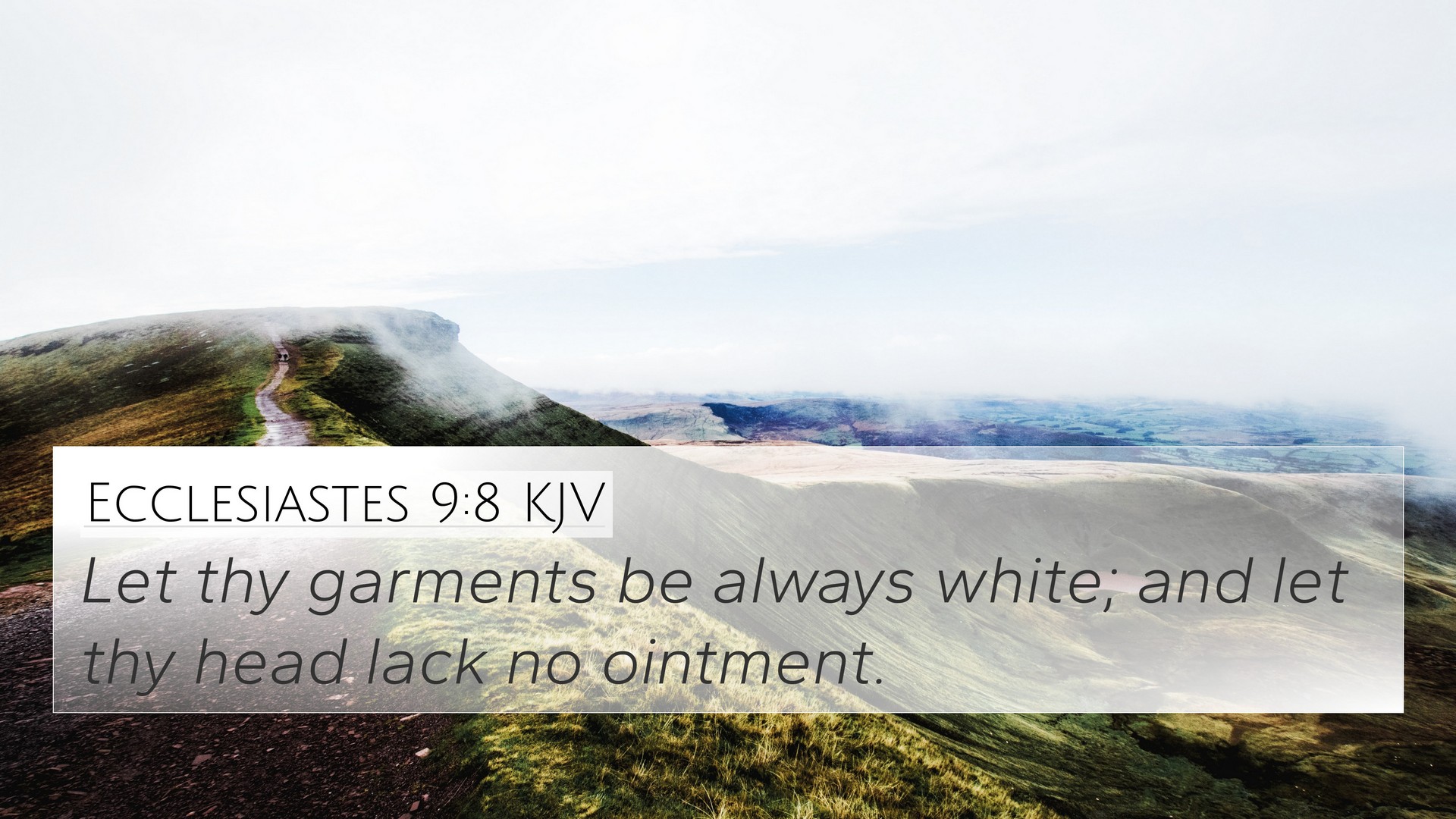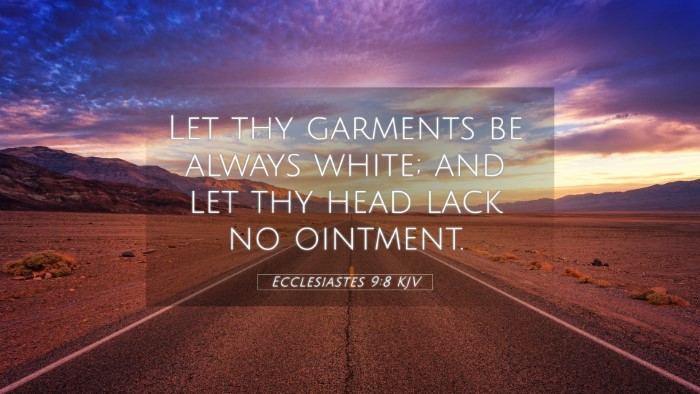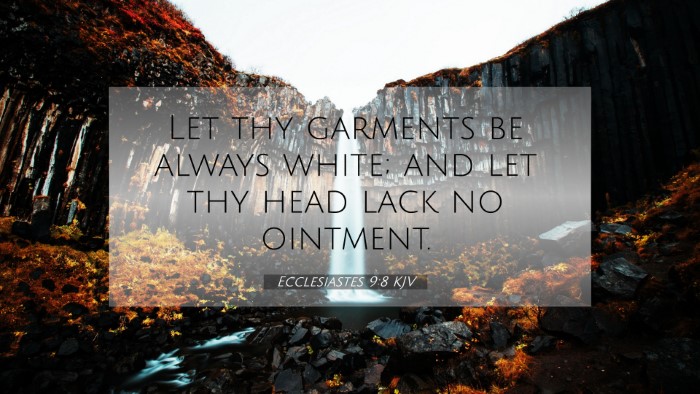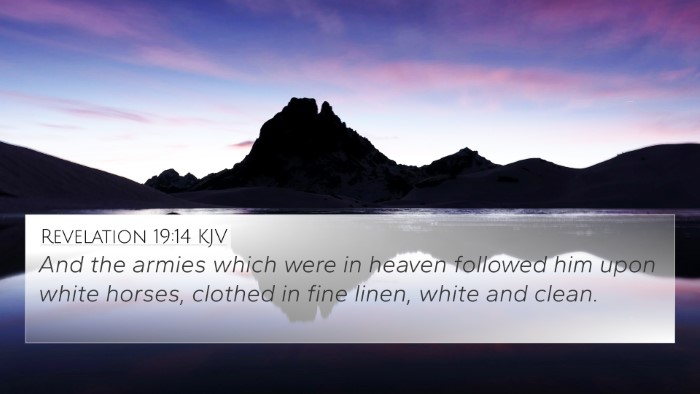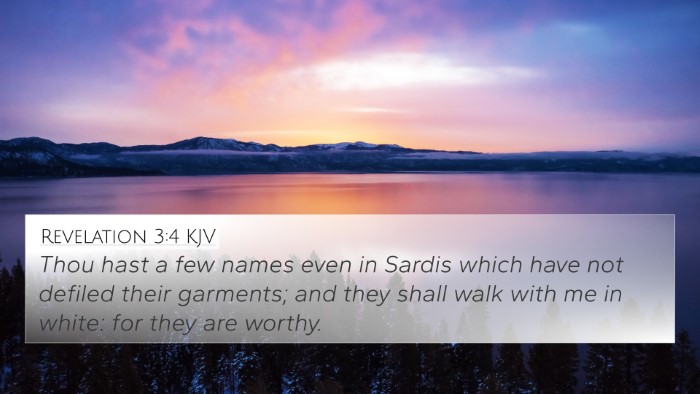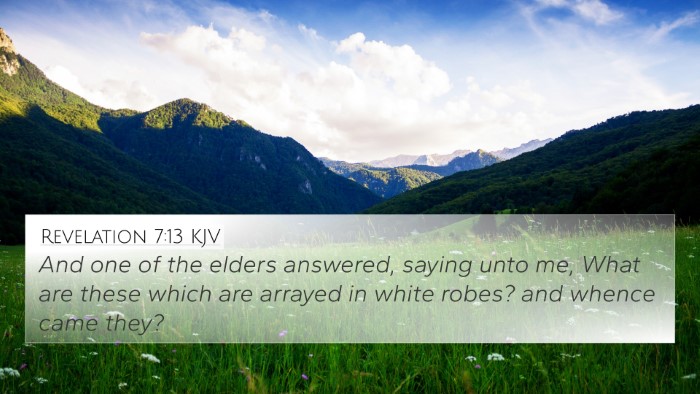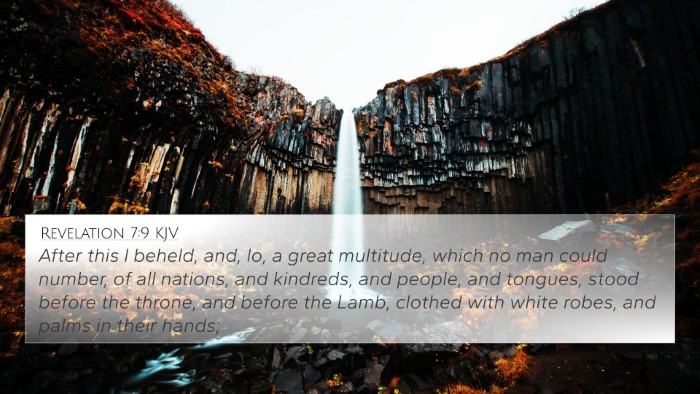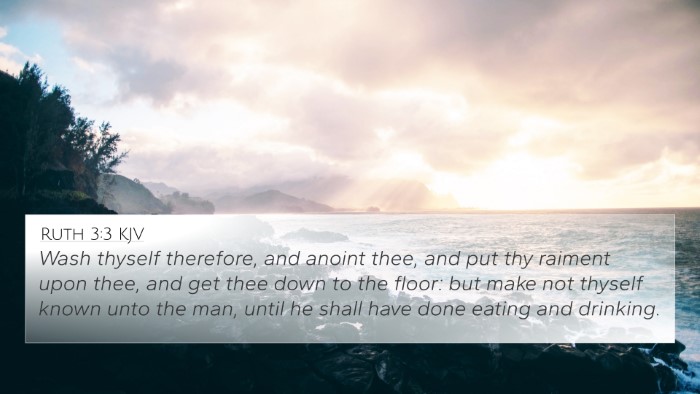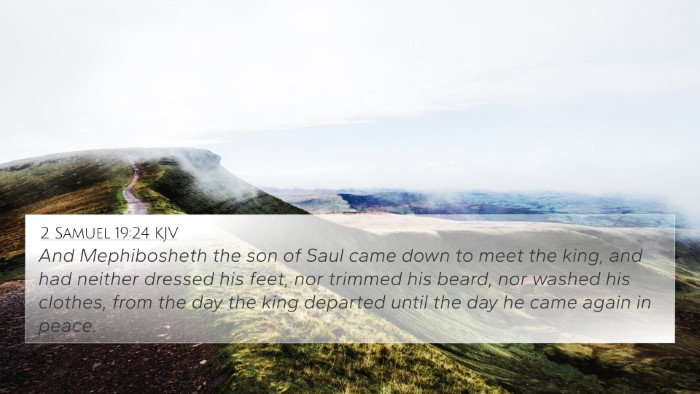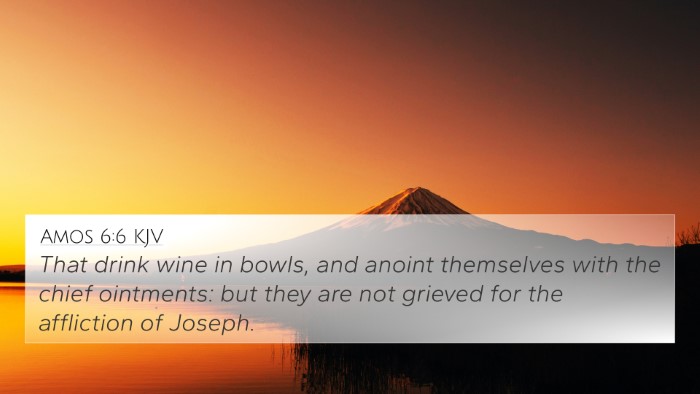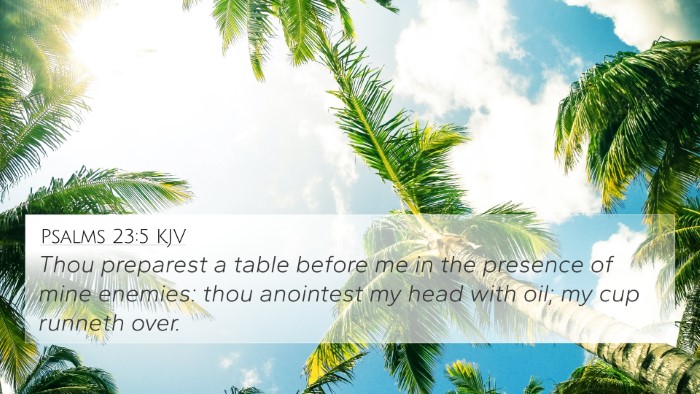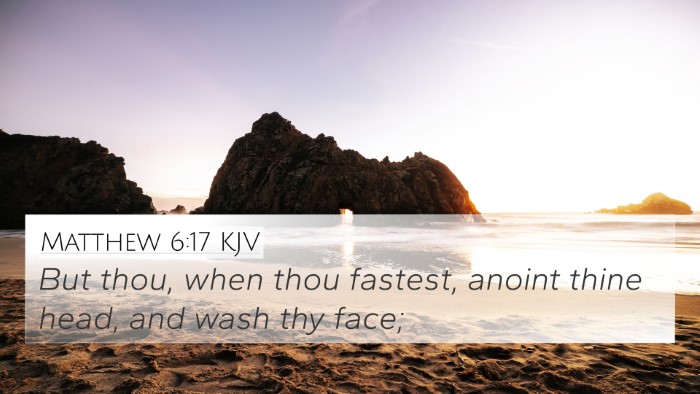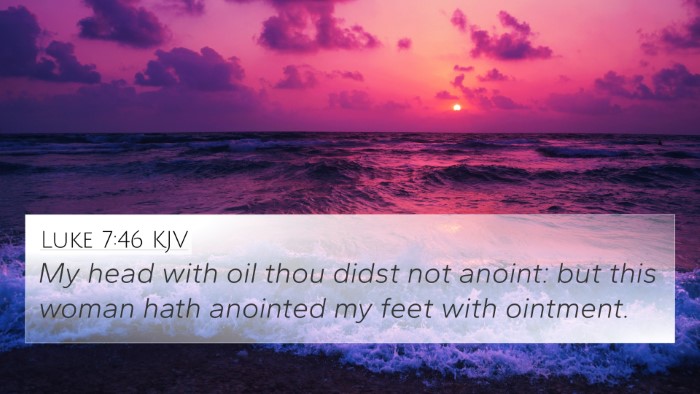Understanding Ecclesiastes 9:8
Ecclesiastes 9:8 states: "Let your garments always be white, and let your head lack no oil." This verse carries significant connotations regarding the disposition of life, joy, and a celebration of one's existence.
This scripture has been examined in various Public Domain Commentaries, offering deeper insight into its meaning. Below is a synthesis drawn from the works of celebrated commentators like Matthew Henry, Adam Clarke, and Albert Barnes.
Verse Analysis
The exhortation for white garments symbolizes purity, joy, and a readiness for the opportunities of life, while the mention of oil reflects a sense of abundance, celebration, and the anointing of joy that should accompany a believer's life.
Insights from Commentaries
Matthew Henry's Commentary
Henry notes that the emphasis on "white garments" suggests an ongoing state of joy and festivity in one’s life. This metaphor indicates that believers should maintain a cheerful demeanor, which is foundational to enjoying life amidst uncertainties.
Albert Barnes' Notes
Barnes explains that “white garments” signify a state of bliss and celebration. In the context of ancient cultures, white was associated with joyous occasions. He stresses the importance of not allowing life's challenges to dampen one's spirit.
Adam Clarke's Commentary
Clarke expands on the significance of "oil," which is often associated with blessings and prosperity. He emphasizes that just as oil was a common symbol of joy and festivity, believers should live lives reflective of these blessings through a maintained spirit of joy.
Thematic Connections in Scripture
This verse can be explored through several related biblical texts that echo its themes:
- Philippians 4:4 - "Rejoice in the Lord always; again I will say, Rejoice." This verse encourages a consistent joy which aligns with the call for white garments.
- Psalm 104:15 - "And wine that maketh glad the heart of man." This reminds us of the joy symbolized by oil in Ecclesiastes 9:8.
- Isaiah 61:3 - "To appoint unto them that mourn in Zion, to give unto them beauty for ashes, the oil of joy for mourning..." highlights the transformation into joy akin to the life encouraged in Ecclesiastes.
- Revelation 3:18 - "I counsel you to buy from me gold refined by fire, so that you may be rich, and white garments so that you may clothe yourself." This connects to the concept of being clothed in joy and purity.
- 1 Peter 5:8 - "Be sober-minded; be watchful. Your adversary the devil prowls around like a roaring lion..." where the balance of joy and vigilance in faith is addressed.
- Luke 12:35 - "Stay dressed for action and keep your lamps burning." This speaks to readiness and confidence in God’s provisions, similar to the preparedness of wearing white and anointing with oil.
- Matthew 6:28-30 - "And why are you anxious about clothing? Consider the lilies of the field..." This challenges believers to seek the joy in God’s providence rather than material worries.
Inter-Biblical Dialogue
The connections between Ecclesiastes 9:8 and other scriptures are significant for understanding a holistic biblical theology on joy and readiness:
- Ecclesiastes 3:12 - "I perceived that there is nothing better for them than to be joyful and to do good as long as they live." This reflects the same message of joyfulness as seen in Ecclesiastes 9:8.
- John 15:11 - "These things I have spoken to you, that my joy may be in you, and that your joy may be full." This resonates with the idea of a life filled with joy, demonstrated through white garments and oil.
Applications for Believers
For contemporary believers, Ecclesiastes 9:8 serves as a reminder to embody joy, purity, and readiness in life. The symbolic representation of white garments and oil encourages a lifestyle characterized by festivity and gratitude for God’s blessings.
Conclusion
In summary, Ecclesiastes 9:8 calls us to a vibrant faith, emphasizing the importance of joy and readiness in our spiritual walk. Cross-referencing this verse with related scriptures deepens our understanding of God’s intent for our lives and encourages us to foster an attitude of celebration.
